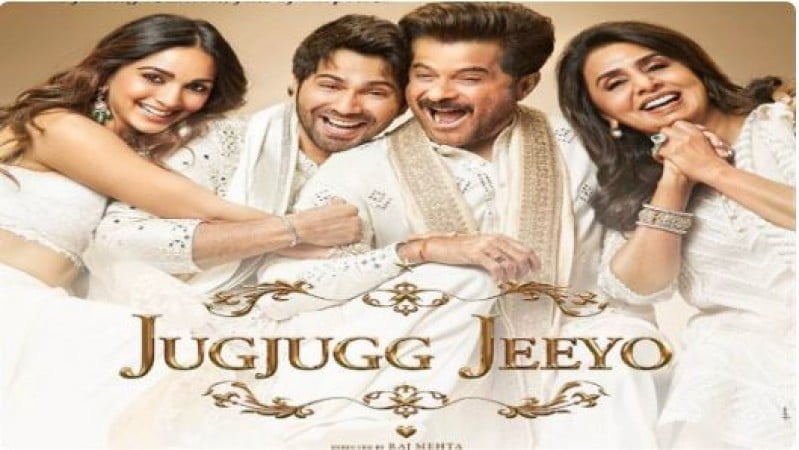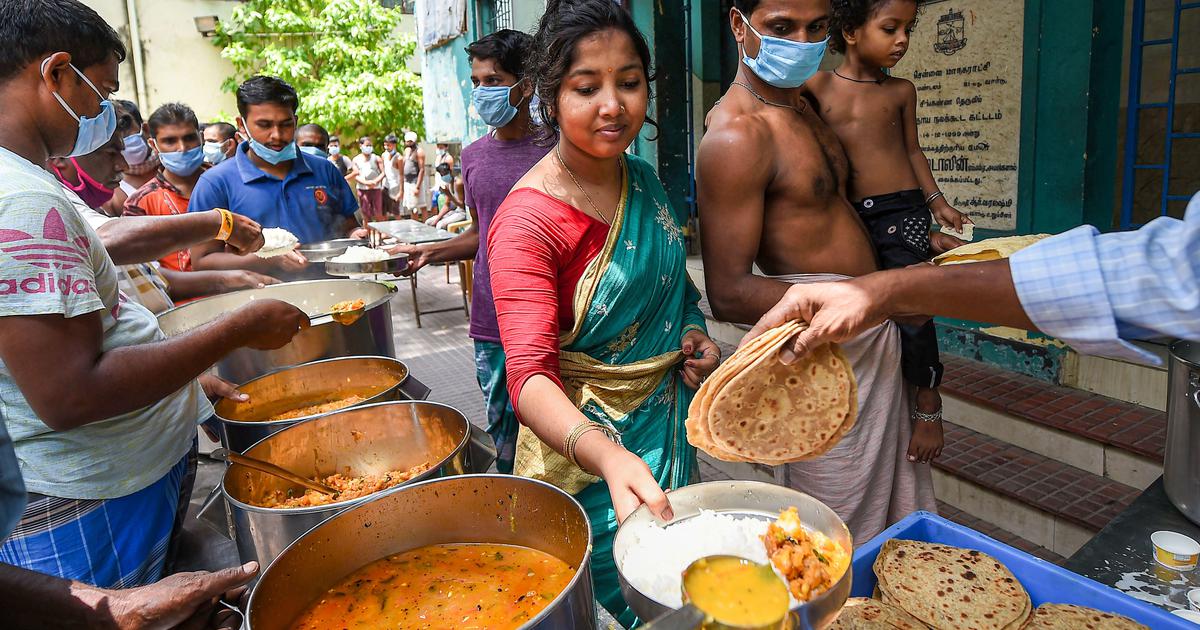Rarely ever will you hear people defending cheating between two people who are in an exclusive relationship. The commonly understood notion of cheating is that it is wrong. However, when examined closer, shades of morality can be found within the perception of different forms of cheating.
There exists a societal hypocrisy in how we perceive cheating based on the gender and the age of the cheater, which when examined more closely speaks more about socially constructed gender norms and their affiliation to age than the moral value of the act itself. The Indian society serves a man above a certain age cheating in a relationship can manage to evade the boundaries of right and wrong and can steer public sentiments to exist comfortably in a grey area.
The asymmetrical treatment of a cheating wife
A few months ago, a Bollywood film called Jug Jug Jiyo seemed to win the hearts of the Indian audience but what’s important to note is the casual normalisation of a cheating man and a subservient wife, which did not ring any alarm bells in the minds of viewers.
Even today, if I may claim, in the “modern” Indian society the rules for cheating are not uniform. A married woman is expected to endure a lot for the preservation of her marital household and infidelity might just be one among this list.
The protagonists’ father, a married man with two children, was shown in love with another woman and his explanation was that men have a sexual appetite that cannot be fulfilled by one woman alone. And to save his parents’ marriage, the protagonist schemed to help his father to have sex with a hooker, without batting an eye as though this was the most normal problem-solving technique out there.

Setting aside the glaring absurdity of the plot line, what irked me was the flippant nature of how a man was portrayed as a grey character that was allowed to sexually cheat on his wife in the larger interest of saving the marriage. Had the tables turned, would a son have ever suggested such a resort to his mother? Would a married mother and wife be seen as a grey character if she cheated on her husband, and would the Indian audience still have loved the film?
Also read: Women And Infidelity: Perspectives On Cheating In A Rigged Game
My answer to both these questions lies in the negative. There exists a hypocrisy in how varied our reactions to a married man cheating in a relationship as opposed to a woman are. Even today, if I may claim, in the “modern” Indian society the rules for cheating are not uniform. A married woman is expected to endure a lot for the preservation of her marital household and infidelity might just be one among this list.
While a marriage might be a union between a man and a woman, the societal norm is that, ensuring its continuance is more of a wife’s job and hence, she must endure a lot and never do anything that can completely disrupt the relationship. A wife cheating is perceived as she is consciously partaking in an action that will lead to conflict in her marriage and hence it’s seen as completely immoral. A man on the other hand is expected to sway a little here and there with their bigger sexual appetites.
The scenario in the dating stage
The immediate question that flows from this, then is – does this grey exist only for married men above a certain age or is universally applicable to all men in the Indian society. If one believes it’s the latter, then that would imply that even while dating, a cheating boyfriend is judged less harshly than a cheating girlfriend.

However, from the dating circles I have encountered, which have mostly upper middle class, metropolitan and liberal minded individuals, that is not the case among relationships with people in their late teens and early twenties. Among the young adults dating circles in big cities, a boyfriend or a girlfriend cheating are both viewed with the same moral lens of right and wrong and rarely does gender play a role in how the morality of the act is judged.
Making sense of the shifting moral values
This then implies that there exists a discrepancy between the role gender plays in judging the moral value of a cheating partner when it comes to relationships that are in their dating stage as compared to those that are in a marriage.
I can provide two explanations for this discrepancy of changing moral values in the case of a boyfriend and a married man. One, that this generation is simply more progressive and has bought less into society’s assigned gender roles. That is to say, the people in their late teens and early twenties that are dating, do not largely believe that it is a woman’s responsibility to sacrifice more for the preservation of a relationship and hence do not assign any additional blame on her if she is the cheater. If one buys this argument, then they would also believe that as this generation grows older and gets married, society will judge both the partners of the marriage uniformly irrespective of the gender of the cheater.
But somehow, I find myself unconvinced by this argument. When I hypnotise about the world, twenty years into the future and think of my peers as people who are married and possibly have children, I do not think that society would remain impartial in evaluating the morality of cheating without letting the gender factor in, as they are doing now in the stages of dating. Maybe in a relationship between two 19 years olds the gender of the cheater does not play a role in society’s value judgement of the act but fast-forward a few years and throw in the institution of marriage, the responsibilities of a couple with kids and the judgement matrix will no longer disregard the gender of the cheater.
Also read: Kerala HC’s Judgement On ‘Use & Throw Culture’ Turns A Blind Eye To Unhappy Marriages
If society judges married women more for cheating than her husband but treats a cheating girlfriend or a boyfriend the same, then the difference is not that of a progressive audience. Because if the answer was just the progressive nature of the generation that is now dating, one would assume that when they would be married in the future, a married man cheating would be no different from a woman. And while I cannot say this with absolute certainty, I believe even then India would not treat the two cheaters alike.
The role of marriage in adopting a gendered judgement matrix
The answer to make sense of the discrepancy, I believe, lies in examining the institution of marriage itself. Marriage in India carries a lot of traditional historic and cultural values that may not always abide by the socio-economic climate prevalent in the country.

A working woman who matches shoulders with male peers in the work environment may still have to follow fasting for her husband’s long life in the name of tradition and preserving historic culture that is associated with marriage.
For example, India today is more progressive in recognising the independent and equal agency of a woman than it was a few decades ago. But has this change reflected in the traditional structures related to the institution of marriage? While a woman’s position might be better today in the socio-economic world, her role within her marriage may still require her to abide by many patriarchal norms and rules in the name of tradition. A working woman who matches shoulders with male peers in the work environment may still have to follow fasting for her husband’s long life in the name of tradition and preserving historic culture that is associated with marriage.
Also read: Marriage For Women: Inevitable And Problematic All At The Same Time?
In India marriage itself is an institution unlike any other. With it, it brings not only contractual obligations with the state but also a general sense of historic rules, traditions, and arguably outdated values that society ensures are obeyed by societal pressure, conditioning since childhood etc. and hence the girlfriend that would not have been judged differently than her partner for cheating now becomes the wife that is judged more harshly than her husband for cheating.
While the matrix of casting judgements is subjective and cannot broadly be pinned down to a singular cause, examining the role of gender biases and the marital institution in this process is important to uncover the true nature of societal value-judgement when it comes to cheating. An evaluation of this may lead a person to answers vastly different from mine, but questioning the process is the vital part.




